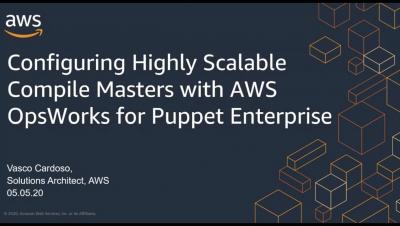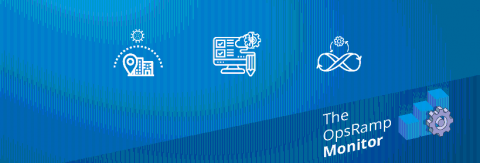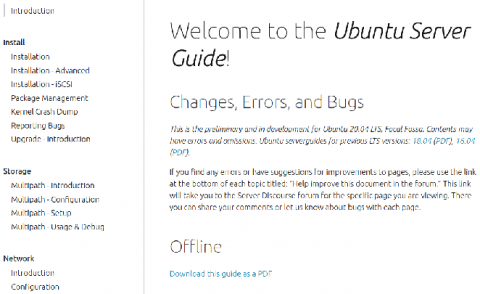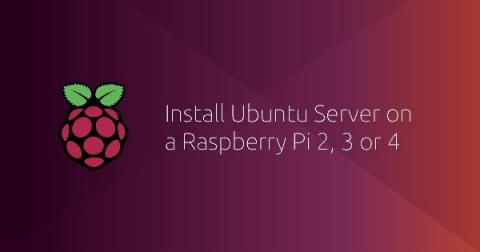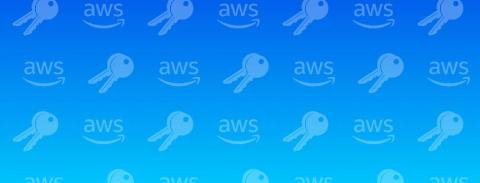Operations | Monitoring | ITSM | DevOps | Cloud
DevOps
The latest News and Information on DevOps, CI/CD, Automation and related technologies.
The OpsRamp Monitor: Big Tech, Securing DevOps, AIOps Growth
As Covid-19 restrictions and predictions march on unabatedly, people are starting to think about what may be long-lasting changes to industries. The tech industry is a mixed bag: it all depends on your perspective. Layoffs are becoming commonplace, especially in BtoC tech startups: Lyft and AirBnB recently announced massive cuts. The giants-- which include the usual suspects Amazon, Microsoft, Facebook, Google, Apple, Netflix--are faring remarkably well, as discussed in a recent New York Times op-ed.
The New Ubuntu Server Guide
With the release of Ubuntu 20.04 LTS (Focal Fossa) the Ubuntu Server Guide has received a major set of updates and has moved to a new location on the Ubuntu website. The new location makes it much easier to read and contribute improvements. There is a link on the bottom of each page that points directly to the corresponding Discourse page which contains the source for each page of the Ubuntu Server Guide.
Ubuntu 20.04 LTS is certified for the Raspberry Pi
The release of Ubuntu 20.04 LTS was April 23, 2020. On the same day, Canonical added full support for Ubuntu Server 20.04 on all of the Raspberry Pis that we certify. Users can flash 20.04 to their Raspberry Pi knowing Canonical guarantees it will ‘just work’ and can make the most out of all of the new features added with 20.04. You can do this from our download page, or from the Official Raspberry Pi Imager tool.
Introducing the Datadog Operator for Kubernetes and OpenShift
As more environments run on Kubernetes—including our own— Datadog has been making it easier to get visibility into clusters of any scale. To minimize load on the Kubernetes API server, the Datadog Agent runs in two different modes. The node-based Agent queries local containers or external endpoints for data, while the Cluster Agent fetches cluster-level metadata from the API server.
DevOps Automation Best Practices for Automotive Software Delivery
In this webinar you will learn:
- How DevOps helps solve the challenges around Automotive and Embedded software delivery
- What a modern CI/CD pipeline and toolset look like in the Automotive industry
- DevSecOps best practices: How to ensure security and compliance as an integral part of your pipeline
- Patterns for reducing the footprint/latency of last-mile deployments to speed-up releases and minimize service interruption
- Hard-won tips and tricks around increasing developer producti
How to deploy an app to AWS: App security
AWS security is an ongoing battle that you must address during every release, every change, and every CVE. When you’re first launching your production application, it’s impossible to check all the boxes; you simply don’t have the time. Until your application gets more adoption, you only have the time to do the bare essentials of security.
Using NGINX as a Queue for JSON Payloads
Why GOPROXY Matters and Which to Pick
Starting with Go 1.13, Go modules are the standard package manager in Golang, automatically enabled on installation along with a default GOPROXY. But with other GOPROXY options like JFrog GoCenter, as well as your own Go module packages you need to keep secure from public view, what kind of configuration should you choose? How can you keep your public and private Golang resources from becoming a tangled knot?
Patching Operating Systems While Working from Home
IT leaders need a well-defined strategy for managing patches and upgrades for software applications and technologies. Planned patch management rollouts help combat security vulnerabilities as unpatched systems are highly vulnerable to data breaches and attacks from hackers. During Covid-19, IT organizations have struggled to keep systems updated using remote teams, especially as software vendors have recently released a record number of patch fixes and upgrades.


